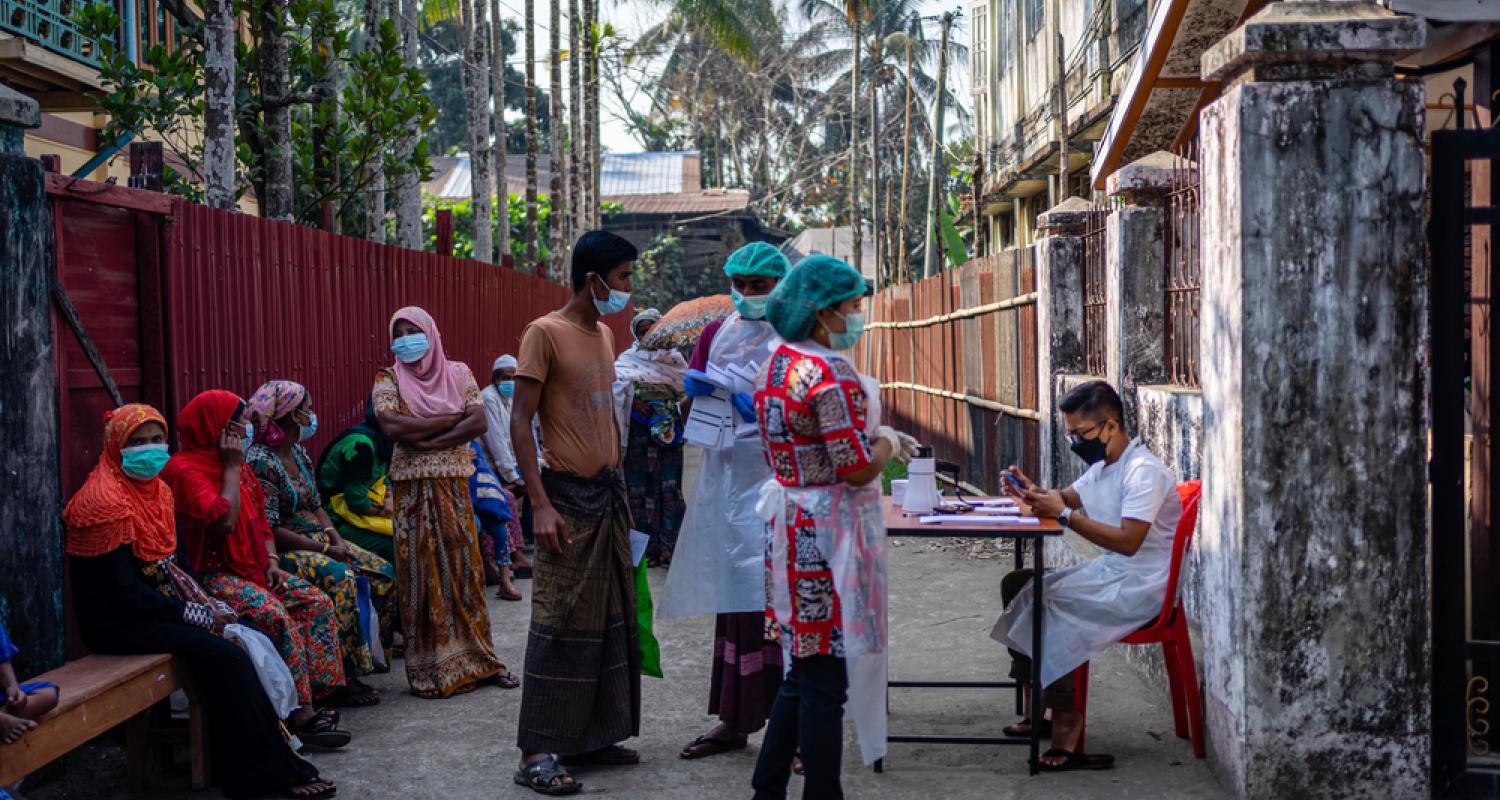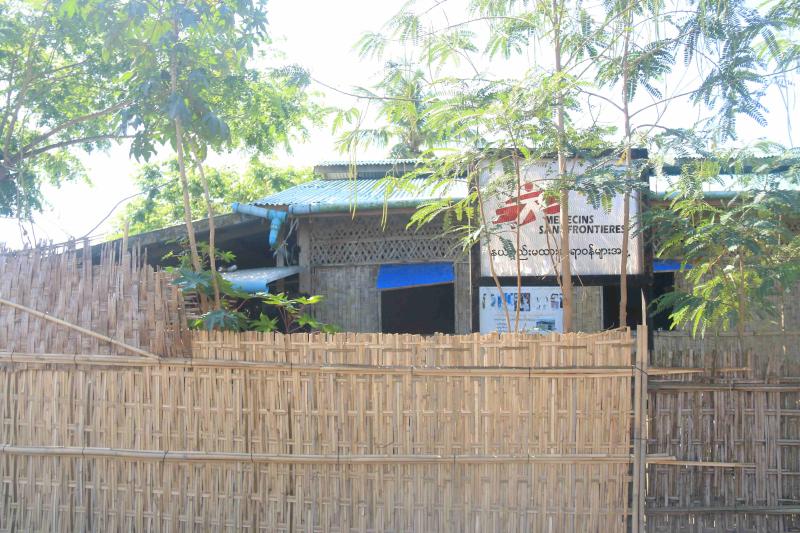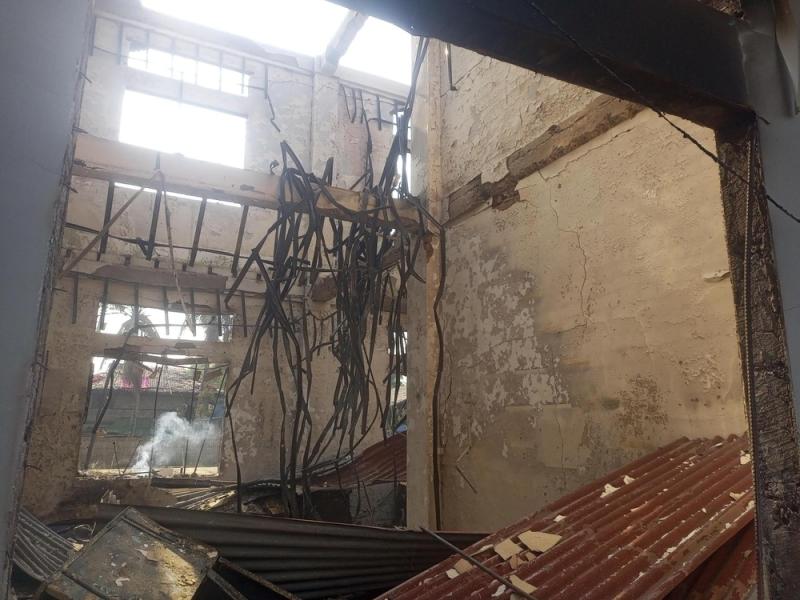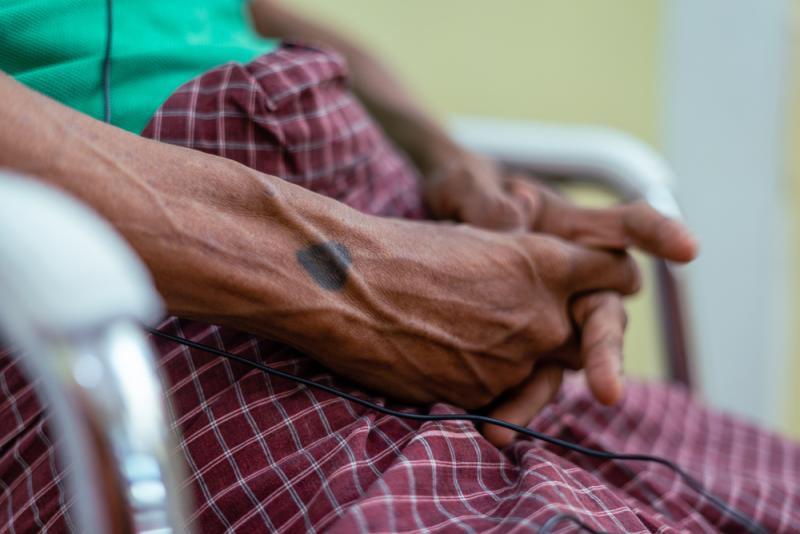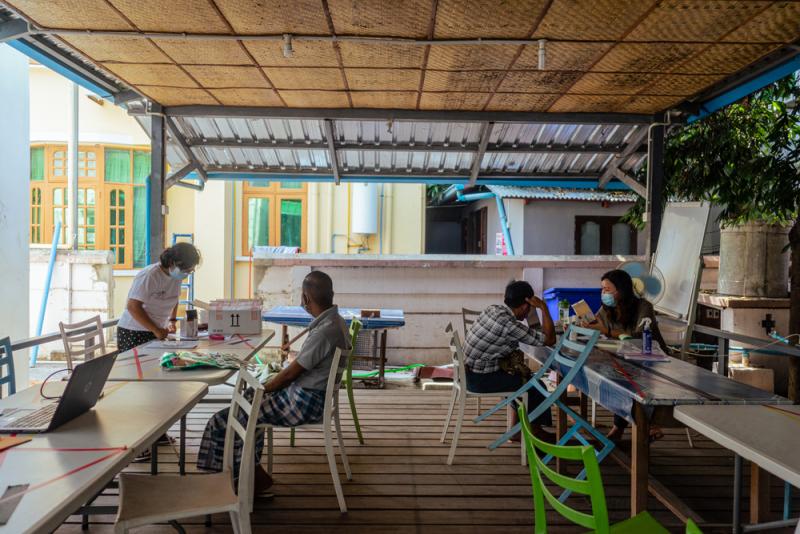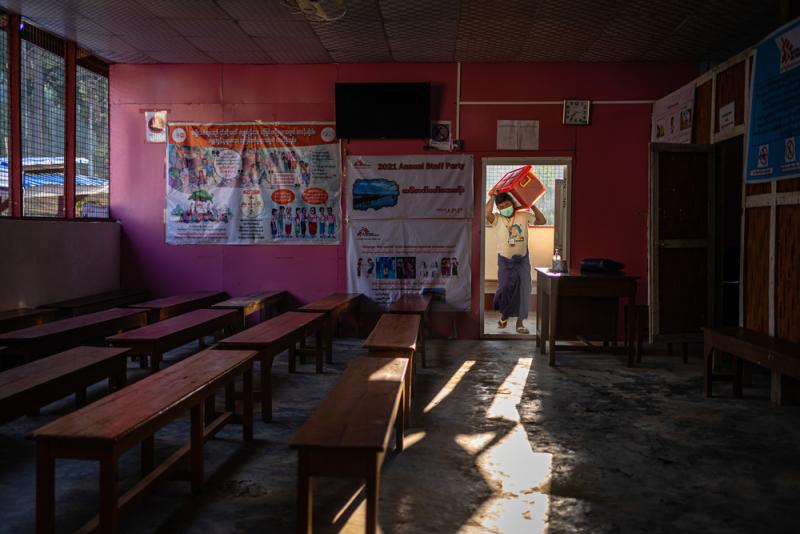Escalating Violence
Latest Update
Due to severe access restrictions and violent conflict, Doctors Without Borders has suspended medical activities in northern Rakhine, Myanmar, as of June 2024. Despite maintaining minimal operations in central Rakhine, our teams face significant challenges.
In Myanmar, humanitarian organizations are facing unprecedented challenges in delivering aid and healthcare services to vulnerable communities. The situation is particularly dire in regions such as northern Rakhine, central Rakhine, northern Shan, Kachin, and Tanintharyi, where conflict, displacement, and restricted access have severely impacted the lives of millions of people.
Doctors Without Borders' response and challenges
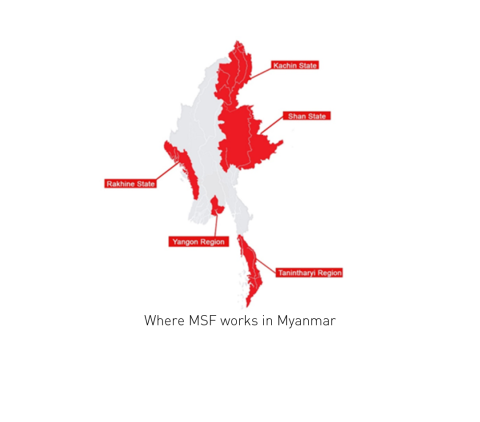
-
In Rakhine state, Doctors Without Borders is witnessing a near-total absence of humanitarian assistance, with consultation numbers plummeting and emergency referrals dropping significantly.
-
Indiscriminate violence threatens civilian lives and healthcare facilities, leading to further displacement and loss of life.
-
Lack of humanitarian access has become normalised, with restrictions imposed on healthcare activities in Rakhine state and dangerous conditions for movement across the country.
-
The number of functioning hospitals is dwindling rapidly, leaving communities without access to essential medical care.
- Northern Rakhine and Central Rakhine
-
People, including Rohingya, are coerced into picking sides in the conflict due to conscription laws or forced recruitments. This situation intensifies feelings of insecurity, especially for Rohingya who face severe restrictions on their movement and lack legal status, leaving them trapped without escape options.
-
Critical affected flow of fuel, food, medical supplies, led to shortages and escalating prices, with significant impact on the population's well-being. Infrastructure issues, like the absence of city power in Sittwe, hamper aid delivery, hindering medical assistance to communities.
-
Since November 2023, Doctors Without Borders has been barred from providing healthcare, leaving mobile clinics, which sees 1,500 patients a week, inactive. Emergency referrals, crucial for maternal and other medical emergencies, face obstacles, contributing to avoidable fatalities, especially among vulnerable groups like laboring mothers.
-
Hospitals in central Rakhine suffer damage or abandonment, limiting access to medical care. Closure of hospitals like Maungdaw and Buthidaung further strains healthcare, leaving patients without options for specialised care.
-
Ongoing violence, including airstrikes and attacks on populated areas, results in civilian casualties and further displacement. The number of displaced persons, including recent arrivals, continues to rise, exacerbating the humanitarian crisis.
-
- Northern Shan State
-
Three ethnic armed organisations launched simultaneous and coordinated military attacks in October 2023, leading to widespread violence and displacement. Civilians bear the brunt, with limited access to emergency assistance due to destroyed infrastructure and constrained humanitarian efforts amid active conflict.
-
Doctors Without Borders intervened in accessible areas, providing relief items, basic healthcare, and psychological support to displaced communities.
-
Despite a ceasefire since early 2024, challenges persist in accessing healthcare and essential services.
-
Areas controlled by armed groups face shortages of healthcare workers and supplies, affecting the delivery of specialised medical care. Disruptions in HIV/TB treatment pose significant risks to patients' health.
-
Doctors Without Borders continues its aid efforts in affected areas, prioritising support for displaced populations and ensuring continuity of care for survivors of sexual violence, treatment for patients with Hepatitis C as well as antenatal, postnatal and family planning services.
-
The team also continues to support the National AIDS Program and National Tuberculosis Program to ensure quality care for HIV/TB patients.
-
- Kachin State
- Ongoing conflict has led to a dire humanitarian situation, with over 100,000 internally displaced people living in camps since 2011.
- Recent months have seen a surge in violence, resulting in civilian casualties and increased displacement.
- Doctors Without Borders is supporting the National AIDS Program (NAP) to ensure continuity of care for patients transitioning from Doctors Without Borders to Ministry of Health (MoH) facilities, but the supply of essential medications is constrained, leading to patients receiving shorter medication cycles.
- Transportation routes have been disrupted by military activities, affecting the operation of Doctors Without Borders' mobile clinics that provide primary healthcare services.
- The safety of these activities hinges on daily levels of violence, complicating access to essential humanitarian assistance for displaced populations.
- The conflict has coerced many individuals into taking sides, either through conscription laws or ongoing recruitment by armed groups, placing significant strain on people's sense of safety, particularly affecting young individuals in displacement camps.
- Despite these challenges, Doctors Without Borders remains committed to delivering sexual reproductive healthcare and supporting survivors of sexual violence in specific clinics across the state.
- Additionally, Doctors Without Borders continues to support the NAP and National Tuberculosis Program (NTP) to ensure the continuation of HIV/TB treatments for patients transitioning from Doctors Without Borders care.
- Tanintharyi Region
In Dawei, Tanintharyi, ongoing violence has led to an influx of internally displaced persons (IDPs). MSF is conducting rapid needs assessments and distributing essential relief items while maintaining primary healthcare clinic activities. Despite the volatile situation, MSF teams are committed to providing healthcare services to those in need.
Support our medical response
You can help our medical teams deliver emergency medical supplies and treatment to people who need it most by making a donation today.
